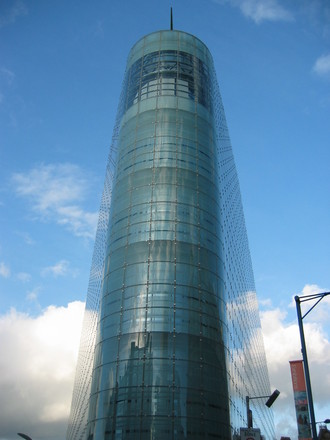
Summary: News from around the world about patents, and software patents in particular, in light of recent and very important developments
TODAY we look at some good news and bad news regarding software patents. In order to make it easier to digest, we have decided to break it down by country/continent.
Software Patents in the US
Banner & Witcoff Ltd released an article titled "Certain Uncertainty: The Future Of Computer Software Patents" (in numerous legal sites [
1,
2). It serves to reinforce our observations, as
recent as last week's, that in the US software patents are arguably dying (or at least suffer a rapid decline). "Since the Alice decision came down last June," explain the lawyers, "the world of computer software patents has been upended, both in litigation and in prosecution. In the realm of prosecution, patent applications dealing with e-commerce and business methods have been hit particularly hard at the U.S. Patent and Trademark Office (USPTO) with Alice rejections, but even those applications dealing with relatively more “technical” concepts have also been facing a harsh new reality in which eligibility rejections are lurking behind every corner and claim amendment."
"The software patenting business seem to have collapsed due to lack of demand.""705 Companies Have Abandoned All Their Pending Patent Applications Due to Alice Rejections," Patent Buddy wrote earlier today, linking to the rather good Bilski Blog (still doing plenty of detailed research into such matters). To quote Robert R. Sachs, his "analysis was based on approximately 300,000 office action and notices of allowance received from Patent Advisor."
It is nice to see some supportive statistics as in this case. This makes it easier to refute proponents of software patents (patent lawyers specialising in this area) who do what they can to distract from these Earth-shaking changes.
"Quality of patents is at gutter level."According to recent reports such as [1, 2, 3, 4, 5, 6, 7, 8, 9, 10, 11, 12, 13, 14, 15], the US protectionism office, USPTO, moves close to its big software patents clients in Silicon Valley . Worry not, however, as according to this, it only "Plans to hire 80 examiners, 21 judges". That's not much. It's probably a lot smaller (order of magnitude even) than people once foresaw. The software patenting business seem to have collapsed due to lack of demand. There are still areas, such as this one (plane designs), that require patents, but they are not anywhere near Silicon Valley. In the United States, based on some USPTO statistics, 92% of all patent applications are eventually "successful", so the distinction between patents and patent applications is remarkably weak. Quality of patents is at gutter level and when patents are brought before a court they are likely not to survive, especially if they are software patents on abstract ideas.
Software Patents in New Zealand
Software patents in New Zealand have been a big topic this past summer because the TPP was alleged to be covertly changing New Zealand's laws so as to create new loopholes, or simply declare software patents formally valid.
We are
gratified to see that politicians like Clare Curran are now getting involved to stop this, and
the media (IDG in this case) helps raise awareness. To quote an article from this week: "New Zealand’s tech sector faces an uncertain future if a hard-fought for exclusion for software patents is missing from the final text of the Trans Pacific Partnership (TPP).
"That’s the view of Labour’s ICT spokesperson Clare Curran, who believes clarity is required sooner rather than later from the Government on the issue."
Software Patents in Australia/Canada
Selling of software patents in Australia/Canada, where the status of software patents is worse (more favourable to them) than in New Zealand,
caught our eyes yesterday. To quote the Canadian press, "Techlink Entertainment’s software and its patents are a key draw for bidders looking to purchase the now-defunct Sydney firm’s personal property."
This reminds us of a Canadian company, BlackBerry/RIM, which can still become somewhat of a patent troll or just a big pile of patents.
Why are software patents are being sold and who are they going to be sold to? Maybe some patent troll will end up grabbing them for extortion purposes.
Software Patents in Europe
Software patents in Europe have been a subject that we cover here quite a lot, sometimes in conjunction with
EPO scandals. Speaking of the situation in Norway, which
is not in the European union, this somewhat
new article alludes to what we deem collusion between patent hoarders, or a conspiracy to pacify the public. To quote the opening paragraph: "On February 8 2012 the Department of Justice proposed new legislation regarding the establishment of pledges on IP rights. The bill was introduced by the government in the form of a proposition one year later (Prop 101 L (2013–2014)) and was approved on January 1 2015, in a process which took a lot longer than what most practitioners had expected. The new legislation came into force on July 1 2015; it is thus now possible to establish pledges on patents, patent applications and patent licences in Norway, in accordance with Sections 4 to 11 of the Mortgage Act. The new rules also require that anyone with rights under a patent must record these in order to ensure protection. The priority of the pledge is the time of registration in the official Patent Register."
"The only "good" patent on software is one that is totally invalidated."Patent pledges are pretty worthless, for reasons we explained many times before. They are usually used to excuse oneself for hoarding patents, which may, some time down the line, be sold to patent aggressors and then be used offensively. Thankfully, after various cases such as Oracle versus Android (Google), more people are aware of such issues. The only "good" patent on software is one that is totally invalidated. ⬆

